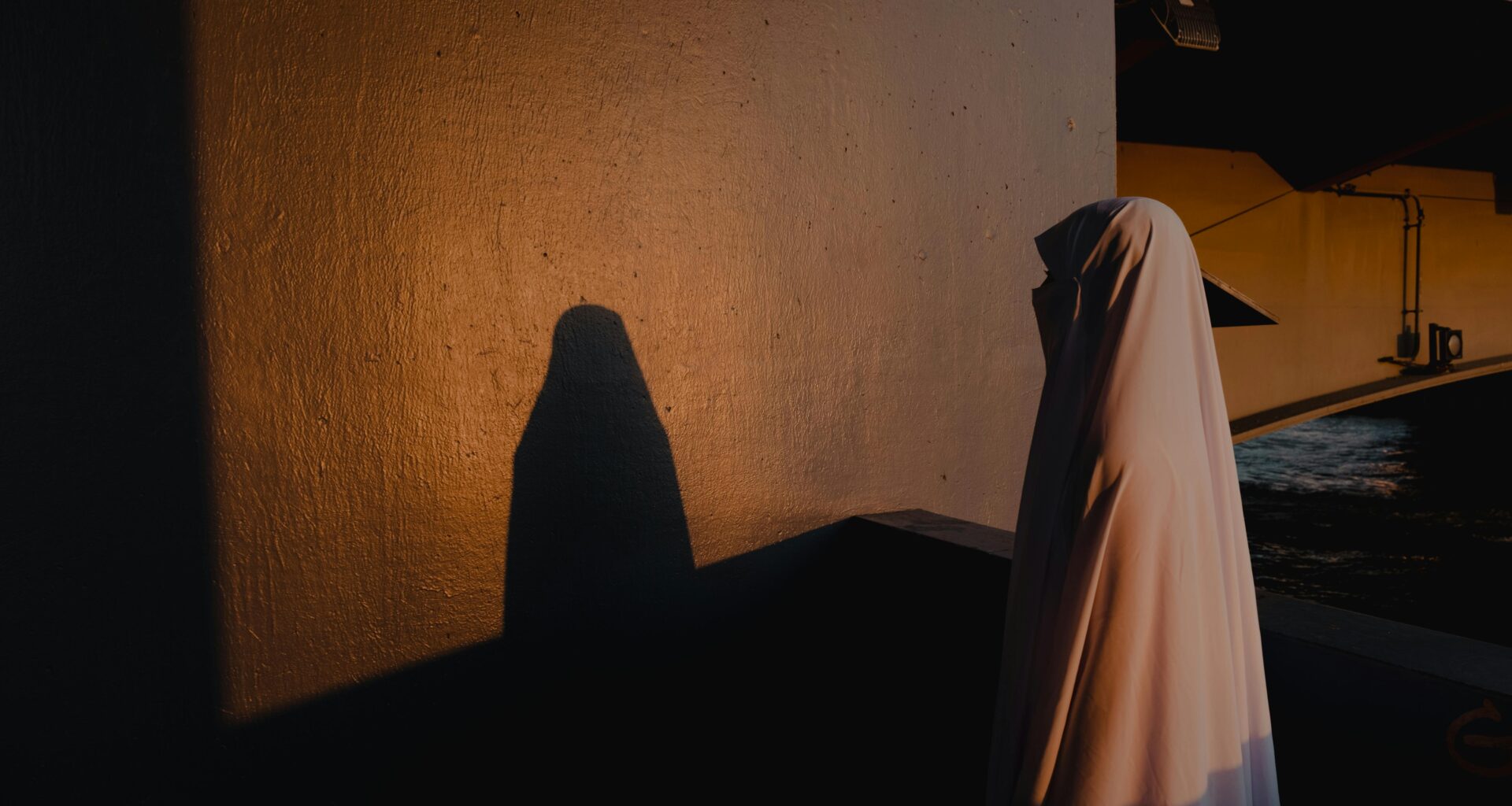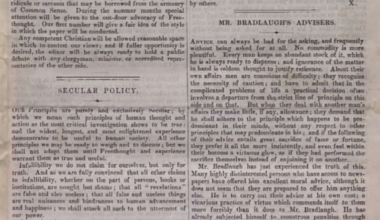This past summer, the internet erupted over an article about influencer Hannah Neeleman, better known as @ballerinafarm to her 19 million followers. Journalist Megan Agnew spent time with Hannah and her family on their Utah farm, examining her ‘tradwife’ lifestyle. The article implied that Hannah, having had eight children, giving up her dream of being a dancer, and focusing on homemaking, was an example of how religion is pushing women back centuries. The portrayal suggested that the tradwife lifestyle is oppressive and harmful to women.
Another example of this trend is influencer Nara Smith, also a Mormon, who at just 23 already has three children and is known for making bubble gum from scratch while dressed in custom, 1950s-inspired housewife attire.
Tradwife content is a hot topic on TikTok, with commentators often expressing disdain, leaving comments like ‘ew’ or ‘this is why Christianity is evil.’ It’s become so common to view Christianity as one of the most oppressive forces against women, yet in today’s world, many Christians are among the more secular members of society. In fact, most tradwife influencers weren’t raised with this lifestyle but chose to adopt it later in life.
A rational view acknowledges that no one has complete autonomy in shaping their choices—our upbringing, society, and, most recently, the internet influence us all. It’s no surprise that some women are drawn to this lifestyle in a world where patriarchal structures still exist.
But what about other religions? You’d expect the Gen Z TikTok crowd and woke liberals, who criticise Christianity and its oppression of women, to express the same concerns about Judaism or Islam. These religions, in their fundamentalist forms, go even further than mainstream Christianity in enforcing traditional gender roles. They place women in even more subordinate roles, emphasizing modesty through practices like wearing burkas, wigs, or long skirts. These aren’t personal choices, but rather expectations instilled in these women from birth. Yet, criticism for misogyny is rarely publicly directed at those religions.
Miriam Ezagui (@miriam.ezagui), an Orthodox Jewish influencer with over two million followers on Instagram, shares insights into her lifestyle online, including her experiences with religious laws such as being prohibited from touching her husband for weeks after childbirth and during parts of her menstrual cycle, the latter a practice she claims is rooted in spiritual beliefs despite its origin in biblical texts on female ‘impurity’:
When a woman has a discharge, her discharge being blood from her body, she shall remain in her menstrual separation seven days; whoever touches her shall be impure until evening. (Leviticus 15:19)
She also promotes dressing her daughters in ‘modest’ clothing from age three through her upbeat videos. In a TikTok explaining her perspective, Miriam says,
In Judaism, there’s a concept that we conceal that which is holy and we don’t put it on display… It is not my job to control the thoughts of men—that’s on them—but by dressing modestly, I hope that my inner beauty shines as brightly as my physical beauty and those are the values I’m teaching my children.
Regardless of Miriam’s intentions, the roots of such modesty laws are steeped in centuries of patriarchal religious tradition. This mindset—that men will only respect women if their bodies are hidden—romanticises the idea of a woman’s body as a ‘holy vessel’ while reinforcing outdated beliefs. By instilling these values in her young daughters, Miriam’s views seem even more regressive than those of many modern-day ‘tradwives’.
Covering up takes on a whole new level with some Muslim influencers, like Garrett and Mubina (@mehdinatv), a couple with over three million followers. Garrett appears in shorts and t-shirts, while Mubina is always in a niqab. In a playful video with her husband, Mubina talks about how covering her face actually makes her feel more comfortable, explaining:
‘I’m happy that this is part of my religion because now at least I know that if I’m having a conversation with someone, they’re focusing on the conversation and not getting distracted by how I look.’ In the same video, she explains her preference for segregated weddings, saying, ‘I prefer segregated weddings because then I can take my veil off, my hijab off, and I can dress how I want…’
The phrase ‘dress how I want’ is telling. It hints that this lifestyle might not be entirely a free choice. Mubina often cheerfully explains that she lives this way for God, sometimes even teasing her husband about his right to multiple wives—or the fact that she doesn’t have male friends. But there’s a deeper reality here. She expresses a desire for freedom, for a chance to go to a wedding and take off some of the layers, yet believes she can only do that around other women. She’s convinced that if men see her face, they won’t see her worth, revealing just how deeply these beliefs are ingrained.
The main difference between influencers like Miriam and Garrett and Mubina and a lot of tradwife accounts is in how they present their beliefs. Tradwives tend to be upfront and unapologetic about what they see as a woman’s role—cooking, raising kids, and obeying their husbands. They don’t try to soften it or make it more palatable. Miriam and Garrett and Mubina, on the other hand, put a different spin on things. They blur the reality of their traditions, glossing over problematic aspects to appeal to a young internet audience that wants to feel like they’re supporting and understanding other cultures. Instead of genuinely ‘dispelling stereotypes’ and ‘educating people’, as they claim, they’re arguably misleading their millions of followers, making their traditions seem harmless or even empowering. This is probably not intentional—they could be so wrapped up in these beliefs that they believe what they’re saying is true.
It’s worth noting that all religious influencer accounts receive criticism and hate in their comments, but the difference in tone and volume is striking. During my research for this article, I found almost no TikTok stitches from major creators critiquing the problematic aspects of Miriam, Garrett and Mubina, or other non-Christian fundamentalist accounts. In contrast, I found hundreds of stitches, as well as articles and Reddit threads, heavily criticising tradwives and Christian fundamentalists.
People embrace the idea of ‘free choice’ only when it fits a certain narrative. A woman choosing the tradwife lifestyle is often labelled a ‘product of an oppressive Christian patriarchy’ while a Muslim woman who wears a burqa or a Jewish girl who can’t sing in public is seen as exercising personal freedom. This selective criticism—quick to condemn Christian practices while overlooking similar restrictions in other religions—reveals a clear double standard.
If the West genuinely cared about women’s oppression, it would confront all forms of misogyny, regardless of religion or culture, rather than avoiding critique for fear of appearing ‘intolerant’. Society and cancel culture online have created an environment where only certain religions and groups are openly criticised for their views on women’s rights, while others are given a pass in the name of cultural sensitivity.









Your email address will not be published. Comments are subject to our Community Guidelines. Required fields are marked *
Donate